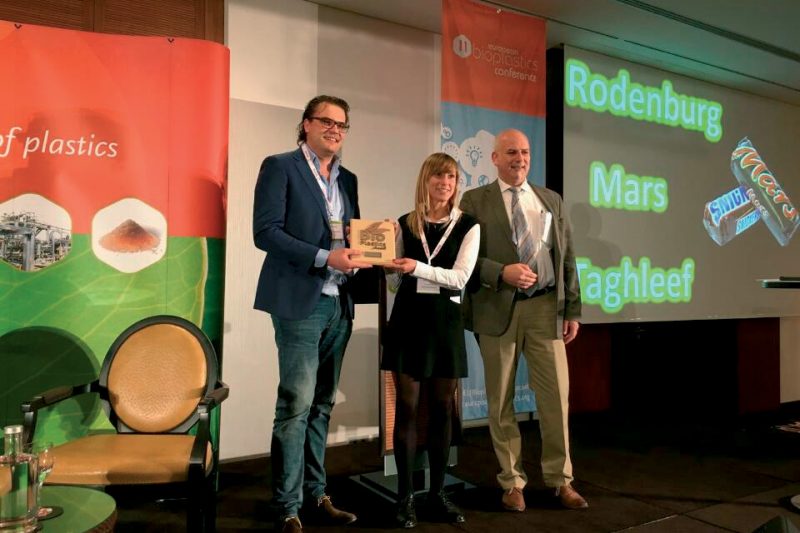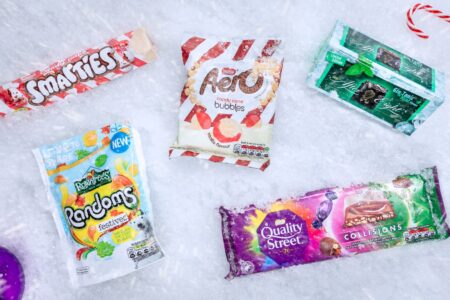Sustainable chocolate wrapper wins industry award

A bio-based film made from potato waste starch used to wrap Mars and Snickers bars has been named as the winner of the 2016 ‘Oskar’ at the Global Bioplastics Awards.
The packaging solution avoids fossil resources by using starch derived from the waste water of the potato processing industry. The joint project, which started in 2012, involves Rodenburg Biopolymers, which produced the raw material, Taghleef Industries, which manufactured the film, Mondi Consumer Goods Packaging, which printed the final packaging, and Mars, which packed its chocolate bars using the film.
Mars says the new material has not in any way compromised the efficiency of its packaging lines – the running speed is equivalent to that achieved with standard polypropylene films.
Rodenburg Biopolymers developed a tailor made compound based on second generation starch derived from waste water of the potato processing industry.
Taghleef Industries then extruded Rodenburg’s compound on its BoPLA line into a biaxially oriented white voided film: Nativia Ness. With thicknesses of 40 and 50 µm, Nativia Ness has a white pearlescent appearance, good opacity, high yield, is heat sealable (MST= 85°C) and cold seal receptive.
The new generation of bioriented and bio-based films fulfills all product protection requirements for chocolate packaging, is food approved and is able to meet the same speed of BOPP films on packaging lines.
Valerio Garzitto, CEO of Taghleef Europe, noted, “This is a great example of a long-term collaboration within the whole value chain of packing material and processing. It took us almost four years of hard work to develop and industrialise the final film, but this project shows that cooperation and expertise are key to success.”
Mondi Solec in Poland converted the film through rotogravure printing and application of cold seal and release lacquer. The printing process was more challenging than for standard OPP films due to the distinctive behaviour of the new film on the printing line, (e.g. film shrinkage caused by the heat generated during printing).



